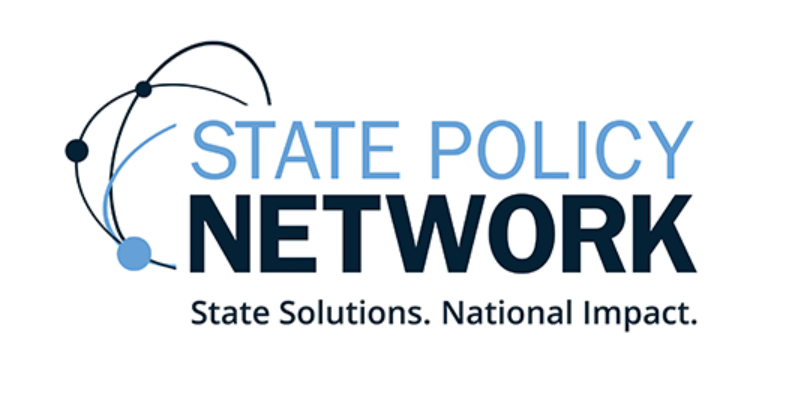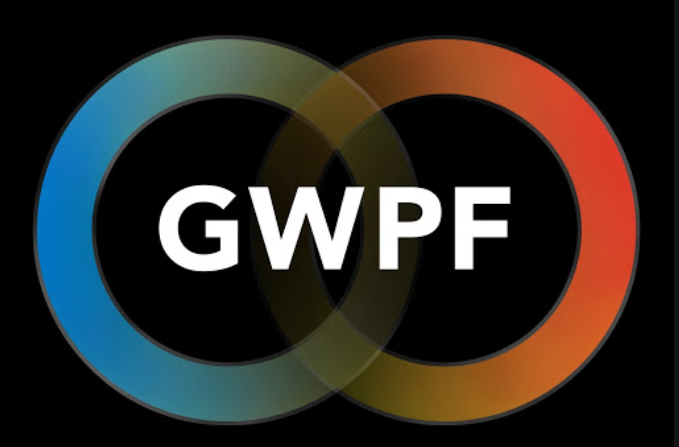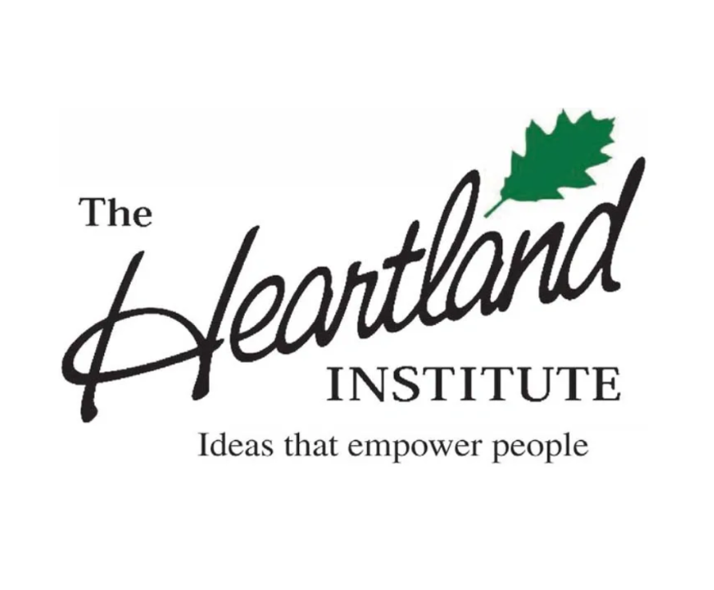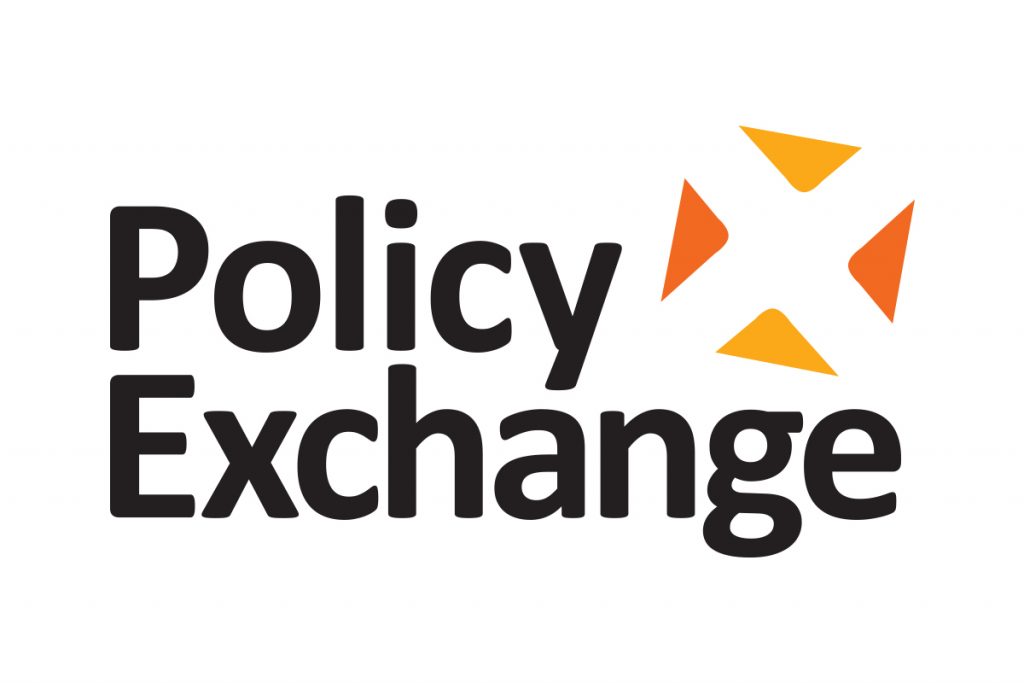State Policy Network (SPN)
Background
The State Policy Network (SPN) is a group of free market think tanks in the U.S. According to its website, there is at least one member in every state “fighting to limit government and advance market-friendly public policy at the state and local levels.”1“About SPN,” State Policy Network. Archived September 16, 2015. Archive URL: https://archive.ph/EmLGg SPN is registered as a 501(c)(3) nonprofit organization, and is supported largely by conservative foundations.2Andy Kroll. “The Right-Wing Network Behind the War on Unions,” Mother Jones, April 25, 2011. Archived September 16, 2015.
The State Policy Network was launched under that name in 1992. SPN‘s vision is that “state-based think tanks will educate the general public and policy makers in every state to embrace market-friendly policies that maximize liberty and opportunity.”3John J. Miller. “Fifty Flowers Bloom,” Hey Miller, September 16, 2009. Archived September 16, 2015. Archive URL: https://archive.ph/u60O3
As the Center for Media and Democracy noted, SPN was originally called the Madison Group and it was created in 1985 as a sibling group to support the state legislative agenda of the American Legislative Exchange Council, and both were co-located within the Heritage Foundation, which was started by Paul Weyrich with funds from the Coors fortune. The Madison Group was launched by multimillionaire Thomas A. Roe, at the urging of Ronald Reagan to create mini Heritage Foundations in the states.
Stance on Climate Change
SPN supports the work of many of the most vocal think tanks that are promoting climate change skepticism including the Heartland Institute, Cato Institute, and Heritage Foundation.
In a “policy exchange” promoting the views of Marlo Lewis Jr. of the Competitive Enterprise Institute, SPN claims that “the EPA‘s ever-increasing mandates, from the revised air standards for ozone to the new greenhouse gas emissions standards, will severely impact state economic growth.4”SPN Environmental Policy Exchange: Volume 4, Issue 2 (March 16, 2011). Archived September 16, 2015. Archive URL: https://archive.ph/magAN
On the subject of climate change, SPN has promoted the view that “[…] the planet is believed to be experiencing a global cooling-not a warming.5”SPN Environmental Policy Exchange: Volume 3, Issue 2 (June 1, 2010). Archived September 16, 2015. Archive URL: https://archive.ph/hGTtF
Funding
The following data is based on archived data at the Conservative Transparency project combined with original research of public 990 tax forms. Note that not all funding data has been verified by DeSmog.
See the attached spreadsheet for a complete list of State Policy Network funding by year (.xlsx).
6“State Policy Network,” Conservative Transparency Project search combined with public 990 data. Data retrieved May 29, 2017.
As Recipient
As Donor
Koch Funding
According to data collected by Greenpeace USA, the State Policy Network has received $128,551 in combined donations from Koch-related foundations between 2002 and 2015:7“State Policy Network (SPN): Koch Industries Climate Denial Front Group,” Greenpeace. Archived March 14, 2017. Archive.is URL: https://archive.is/xV4lE
See DeSmog’s analysis based on available 990 forms below:
| Year | Charles G Koch Charitable Foundation | Claude R Lambe Charitable Foundation | Charles Koch Institute | Grand Total |
| 2002 | $6,500 | $6,500 | ||
| 2004 | $2,500 | $2,500 | ||
| 2005 | $15,000 | $15,000 | ||
| 2006 | $15,000 | $15,000 | ||
| 2011 | $10,000 | $10,000 | ||
| 2012 | $15,223 | $15,223 | ||
| 2014 | $19,200 | $19,200 | ||
| 2015 | $11,738 | $5,200 | $16,938 | |
| 2016 | $13,564 | $8,000 | $21,564 | |
| 2017 | $6,626 | $6,626 | ||
| 2018 | $6,000 | $6,000 | ||
| 2019 | $3,850 | $3,850 | ||
| 2020 | $4,827 | $4,827 | ||
| 2021 | $4,827 | $4,827 | ||
| Grand Total | $79,855 | $49,000 | $19,200 | $148,055 |
990 Forms
Peabody Energy Funding
June 13, 2016
The State Policy Network was listed as a creditor in Peabody Energy’s 2016 bankruptcy filings, reports the Center for Media and Democracy (CMD/PRWatch). A number of SPN members including the Independence Institute from Colorado, and the Texas Public Policy Foundation have direct financial ties to Peabody.8Nick Surgey. “Peabody Coal Bankruptcy Reveals Climate Denial Network Funding,” PRWatch, June 13, 2016. Archived June 20, 2016. Archive URL: https://archive.ph/a73wj
While the available bankruptcy documents do not list the scale or dates of funding, they outline Peabody Energy’s financial ties to a large network of groups promoting climate change denial.9“In re: Peabody Energy Corporation, et al. Debtors,” United States Bankruptcy Court Eastern District of Missouri Eastern Division, Case 16-42529, May 27, 2016. Retrieved from DocumentCloud.
Prominent individuals appearing in the documents include climate deniers Willie Soon, Richard Lindzen, Roy Spencer and Richard Berman. The long list of organizations also includes groups such as Americans for Prosperity, American Legislative Exchange Council, CFACT, Institute for Energy Research, State Policy Network, the U.S. Chamber of Commerce and dozens more.10Farron Cousins. “Court Documents Show Coal Giant Peabody Energy Funded Dozens Of Climate Denial Groups,” DeSmog, June 13, 2016.
The Guardian also analysed and reported on the Peabody bankruptcy findings:11Suzanne Goldenberg and Helena Bengtsson. “Biggest US coal company funded dozens of groups questioning climate change,” The Guardian, June 13, 2016. Archive URL: https://archive.ph/pw7On
“These groups collectively are the heart and soul of climate denial,” said Kert Davies, founder of the Climate Investigation Center, who has spent 20 years tracking funding for climate denial. “It’s the broadest list I have seen of one company funding so many nodes in the denial machine.”
The company’s filings reveal funding for a range of organisations which have fought Barack Obama’s plans to cut greenhouse gas emissions, and denied the very existence of climate change. […]
Among Peabody’s beneficiaries, the Center for the Study of Carbon Dioxide and Global Change has insisted – wrongly – that carbon emissions are not a threat but “the elixir of life” while the American Legislative Exchange Council is trying to overturn Environmental Protection Agency rules cutting emissions from power plants. Meanwhile, Americans for Prosperity campaigns against carbon pricing. The Oklahoma chapter was on the list. […]
“The breadth of the groups with financial ties to Peabody is extraordinary. Thinktanks, litigation groups, climate scientists, political organisations, dozens of organisations blocking action on climate all receiving funding from the coal industry,” said Nick Surgey, director of research for the Center for Media and Democracy.
“We expected to see some denial money, but it looks like Peabody is the treasury for a very substantial part of the climate denial movement.”
Notable organizations listed in the initial documents include:
- 60 Plus Association
- The American Coalition for Clean Coal Electricity
- American Energy Alliance
- Alliance For Energy And Economic Growth
- American Energy Alliance
- American Legislative Exchange Council
- Americans For Prosperity Oklahoma
- Atlas Economic Research Foundation
- Berman And Company, Inc
- Consumer Energy Alliance
- Center For Clean Air Policy
- Center for Energy and Economic Development
- Center For The Study Of Carbon Dioxide And Global Change
- Coalition for Responsible Regulation
- Committee For A Constructive Tomorrow
- Council on State Taxation
- DCI Group AZ, LLC
- Ducks Unlimited
- Energy & Environment Legal Institute
- Edison Electric Institute
- Franklin Center for Government and Public Integrity
- Free Market Environmental Law Clinic
- Frontiers Of Freedom Institute
- George C. Marshall Institute
- Hill Knowlton Strategies
- Hill Knowlton, Inc
- Hudson Institute
- Hunton & Williams
- Independence Institute
- Institute For Energy Research
- Institute for Liberty
- National Association of Manufacturers
- National Black Chamber of Commerce
- National Conference of State Legislatures
- National Mining Association
- National Association of Regulatory Utility Commissioners
- National Rural Electric Cooperative Association
- NextGen Energy Council
- PACE (May refer to Partnership for Affordable Clean Energy)
- Science & Public Policy Institute
- Sidley Austin LLP
- State Policy Network
- Texas Conservative Coalition Research Institute
- Texas Public Policy Foundation
- U.S. Chamber of Commerce
- Western Business Roundtable
Notable individuals named in the initial documents include the following:
Key People
Board of Directors
| Name | 2012 | 2013 | 2014 | 2015 | 2016 | 2017 | Description/Company Affiliation |
| Adam Meyerson | Y | Y | Y | Y | Y | Y | Philanthropy Roundtable |
| Barbara Wells Kenney | Y | Y | Y | Freedom Foundation | |||
| Bridgett G. Wagner | Y | Y | Y | Y | Y | Y | The Heritage Foundation |
| Carl Helstrom | Y | Y | Y | Y | Y | Y | (Chairman) The JM Foundation |
| Gisèle Huff, PhD | Y | (Former Treasurer) Jaquelin Hume Foundation | |||||
| John Hood | Y | John William Pope Foundation | |||||
| John Jackson | Y | Y | Y | Y | Y | Adolph Coors Foundation | |
| Karen Buchwald Wright | Y | Ariel Corporation | |||||
| Lawson Bader | Y | DonorsTrust | |||||
| Stanford D. Swim | Y | Y | Y | Y | Y | Y | (Secretary) The GFC Foundation |
| Theodore D. Abram | Y | Y | Y | Y | Y | Y | American Institute for Full Employment |
| Thomas Willcox | Y | Y | Y | Y | Y | Y | (Treasurer) The Roe Foundation |
| Tracie J. Sharp | Y | Y | Y | Y | Y | Y | (President) State Policy Network |
| Whitney L. Ball | Y | Y | Y | Y | DonorsTrust. *Now deceased. |
Actions
December 2021
Several members and former-members of the State Policy Network filed briefs in West Virginia v. EPA, a U.S. Supreme Court case that reduced the EPA’s ability to regulate power plants under the Obama administration’s Clean Power Plan.12“West Virginia, et al., Petitioners v. Environmental Protection Agency, et al,” Supremecourt.gov. No. 20-1530. PDFs on file at DeSmog.
Three separate briefs were filed by the Cato Institute (Associate Member), Competitive Enterprise Institute (Associate Member), and Buckeye Institute (Affiliate member).
Three additional briefs were filed by former SPN members, namely the Landmark Legal Foundation, Claremont Institute, and Southeastern Legal Foundation.13“West Virginia, et al., Petitioners v. Environmental Protection Agency, et al,” Supremecourt.gov. No. 20-1530. PDFs on file at DeSmog.
January 2021
According to The New Yorker, the State Policy Network had arranged a conference call with billionaire political donor Charles Koch and Steve Donaldson, policy advisor to Senator Mitch McConnell, following the Democrats’ 2020 election victory, in an attempt to block the ratification of the For the People Act, an electoral reform bill intended to expand voting rights and limit the influence of money in politics. Participants in the call reportedly included Heather Lauer, executive director of People United for Privacy (a project of the State Policy Network) and Grover Norquist, the founder and President of Americans for Tax Reform.14Jane Mayer. “Inside the Koch-Backed Effort to Block the Largest Election-Reform Bill in Half a Century,” The New Yorker, March 29, 2021. Archived May 21, 2021. Archive URL: https://archive.ph/XINLq
During the audio transcript of the call, MacKenzie said:
“Don’t get into a fight in HR 1 when you engage with the other side’s talking point: “HR 1 stops billionaires from buying elections. Unfortunately, we found that is a winning message for both the general public and also conservatives. That simple message, by far and away, resonated with people, and when they had to compare that simple message versus tons of other ones, they were most persuaded by that and they found that to be most convincing…it riled them up the most.”15Jane Mayer. “Inside the Koch-Backed Effort to Block the Largest Election-Reform Bill in Half a Century,” The New Yorker, March 29, 2021. Archived May 21, 2021. Archive URL: https://archive.ph/XINLq
He continued:
“We undertook this research to test whether the phrase ‘cancel culture’ could be attached to HR 1, and using that to motivate the Right would be helpful. Unfortunately…this concept of cancel culture didn’t really resonate with people. Our phrase was something akin to ‘HR 1 is the Left’s attempt to use cancel culture to cancel conservatives,’ something like that. And it really ranked in the bottom, obviously, for the general public, and also for conservatives as well. So that was definitely a little concerning to us.”16Jane Mayer. “Inside the Koch-Backed Effort to Block the Largest Election-Reform Bill in Half a Century,” The New Yorker, March 29, 2021. Archived May 21, 2021. Archive URL: https://archive.ph/XINLq
Related Organizations
SPN states that membership is voluntary and by invitation-only. According to their website, “SPN‘s mission is to provide its members with capacity-building services. SPN neither directs nor manages its members’ programs or activities. SPN members pride themselves on their independence and relevancy to their respective states and/or areas of public policy research.”17“SPN Membership Information,” State Policy Network. Archived September 18, 2015. Archived .pdf on file at DeSmog. Archive URL: https://archive.ph/USO12
Regular Members
“A regular member operates as a full-service think tank, addressing a variety of relevant policy issues, not just a single-issue. They will operate independently with their state, and not as part of a state chapter, franchise, other effort of a separate organization. Their primary goal is to provide educational materials to the citizenry, public officials, and members of the media with a state-based focus. They refuse to accept or solicit government funding, and are IRS approved 501(c)(3)s.”
Associate Members
“Like regular members, associate members are organizations that display a commitment to a market-oriented foundational public policy. They are also IRS approved 501(c)(3) organizations primarily focused on education and operate independently of all government funding. However, unlike regular members, SPN Associate Members can be national in scope and are not necessarily oriented towards a single state.”
The State Policy Network listed the following members in their online directory, with prior years available via the internet archive. Alternatively view all State Policy Network member organizations in .xlsx format:18“Directory,” State Policy Network. Accessed September 18, 2015. Archived .pdf on file at DeSmog.
State Policy Network Contact & Location
As of June 2016, the State Policy Network (SPN) listed the following contact information on its website:19“Contact Us,” State Policy Network. Archived June 29, 2016. Archive URL: https://archive.ph/G9YCi
State Policy Network
1655 North Fort Myer Drive
Suite 360
Arlington, VA 22209Phone: (703) 243-1655
Fax: (703) 740-0314
Social Media
- @StatePolicy on Twitter.
- “State Policy Network” on Facebook.
- “State Policy Network” on LinkedIn.
Other Resources
- “State Policy Network,” Wikipedia.
Resources
- 1“About SPN,” State Policy Network. Archived September 16, 2015. Archive URL: https://archive.ph/EmLGg
- 2Andy Kroll. “The Right-Wing Network Behind the War on Unions,” Mother Jones, April 25, 2011. Archived September 16, 2015.
- 3John J. Miller. “Fifty Flowers Bloom,” Hey Miller, September 16, 2009. Archived September 16, 2015. Archive URL: https://archive.ph/u60O3
- 4”SPN Environmental Policy Exchange: Volume 4, Issue 2 (March 16, 2011). Archived September 16, 2015. Archive URL: https://archive.ph/magAN
- 5”SPN Environmental Policy Exchange: Volume 3, Issue 2 (June 1, 2010). Archived September 16, 2015. Archive URL: https://archive.ph/hGTtF
- 6“State Policy Network,” Conservative Transparency Project search combined with public 990 data. Data retrieved May 29, 2017.
- 7“State Policy Network (SPN): Koch Industries Climate Denial Front Group,” Greenpeace. Archived March 14, 2017. Archive.is URL: https://archive.is/xV4lE
- 8Nick Surgey. “Peabody Coal Bankruptcy Reveals Climate Denial Network Funding,” PRWatch, June 13, 2016. Archived June 20, 2016. Archive URL: https://archive.ph/a73wj
- 9“In re: Peabody Energy Corporation, et al. Debtors,” United States Bankruptcy Court Eastern District of Missouri Eastern Division, Case 16-42529, May 27, 2016. Retrieved from DocumentCloud.
- 10Farron Cousins. “Court Documents Show Coal Giant Peabody Energy Funded Dozens Of Climate Denial Groups,” DeSmog, June 13, 2016.
- 11Suzanne Goldenberg and Helena Bengtsson. “Biggest US coal company funded dozens of groups questioning climate change,” The Guardian, June 13, 2016. Archive URL: https://archive.ph/pw7On
- 12“West Virginia, et al., Petitioners v. Environmental Protection Agency, et al,” Supremecourt.gov. No. 20-1530. PDFs on file at DeSmog.
- 13“West Virginia, et al., Petitioners v. Environmental Protection Agency, et al,” Supremecourt.gov. No. 20-1530. PDFs on file at DeSmog.
- 14Jane Mayer. “Inside the Koch-Backed Effort to Block the Largest Election-Reform Bill in Half a Century,” The New Yorker, March 29, 2021. Archived May 21, 2021. Archive URL: https://archive.ph/XINLq
- 15Jane Mayer. “Inside the Koch-Backed Effort to Block the Largest Election-Reform Bill in Half a Century,” The New Yorker, March 29, 2021. Archived May 21, 2021. Archive URL: https://archive.ph/XINLq
- 16Jane Mayer. “Inside the Koch-Backed Effort to Block the Largest Election-Reform Bill in Half a Century,” The New Yorker, March 29, 2021. Archived May 21, 2021. Archive URL: https://archive.ph/XINLq
- 17“SPN Membership Information,” State Policy Network. Archived September 18, 2015. Archived .pdf on file at DeSmog. Archive URL: https://archive.ph/USO12
- 18“Directory,” State Policy Network. Accessed September 18, 2015. Archived .pdf on file at DeSmog.
- 19“Contact Us,” State Policy Network. Archived June 29, 2016. Archive URL: https://archive.ph/G9YCi





